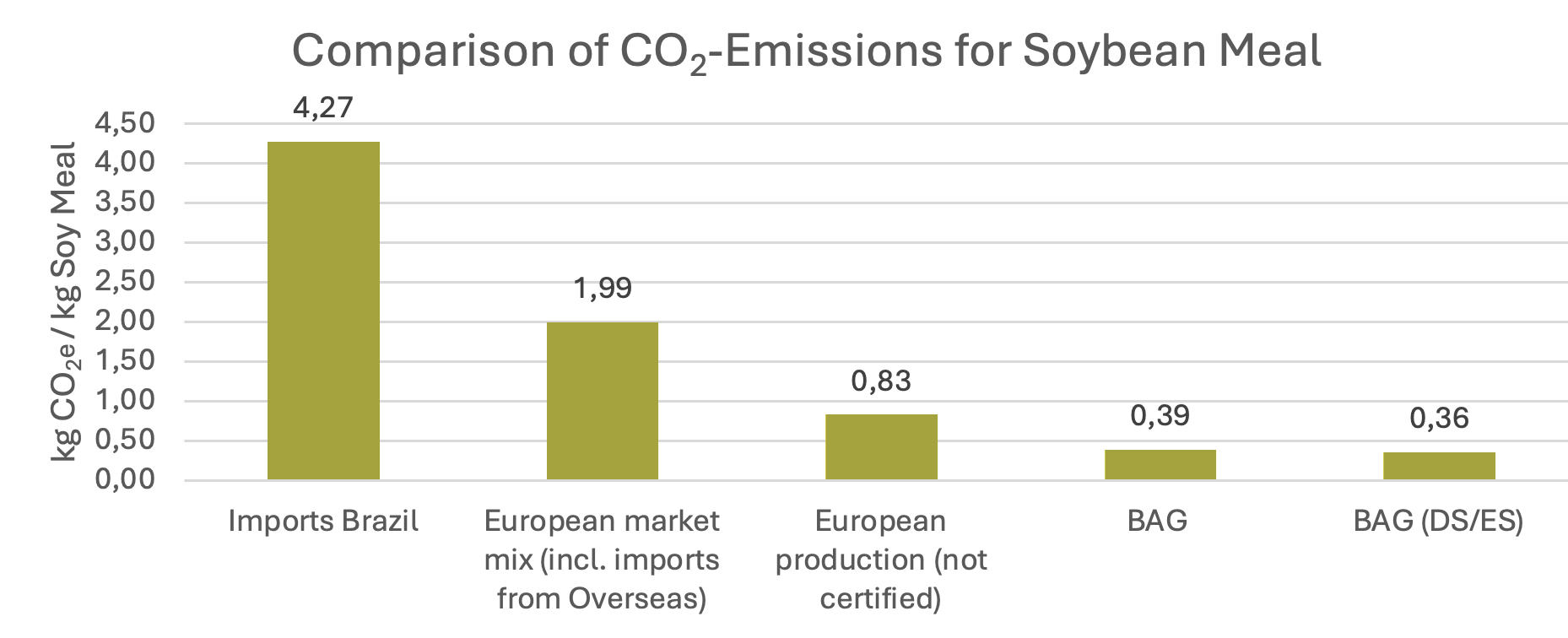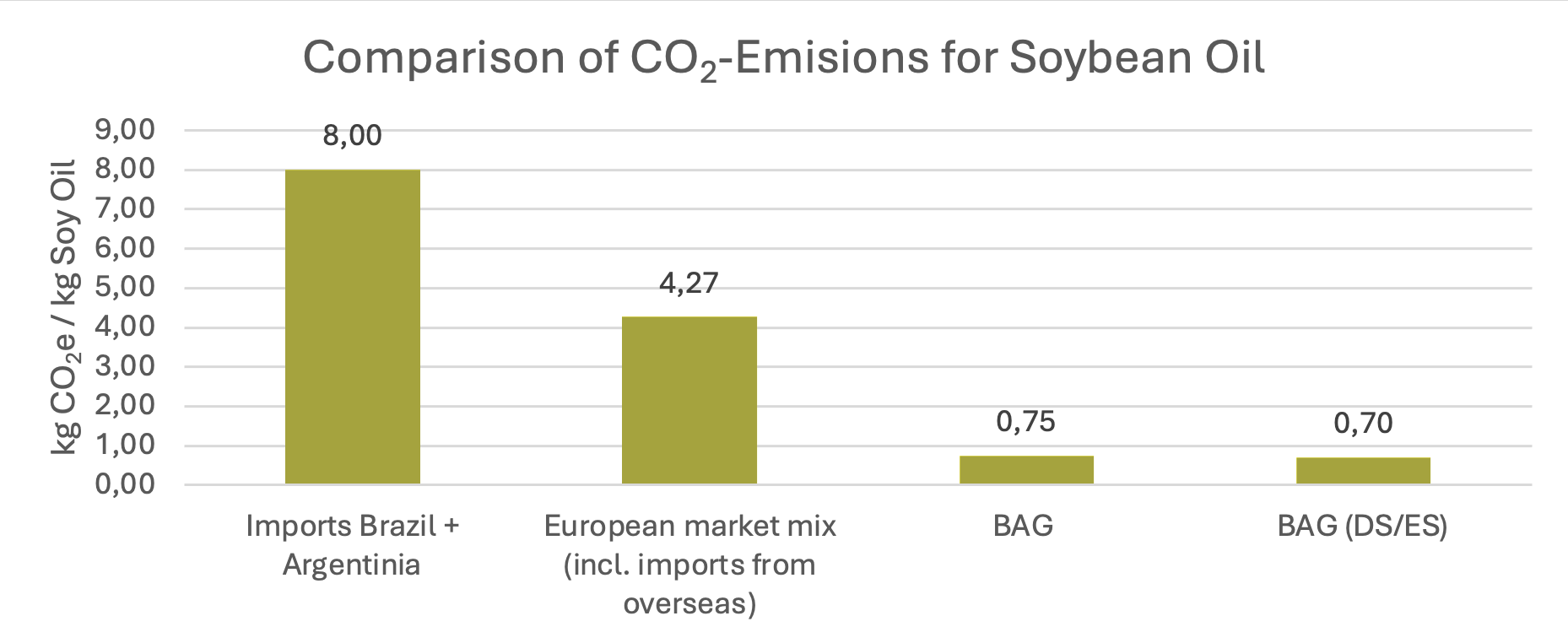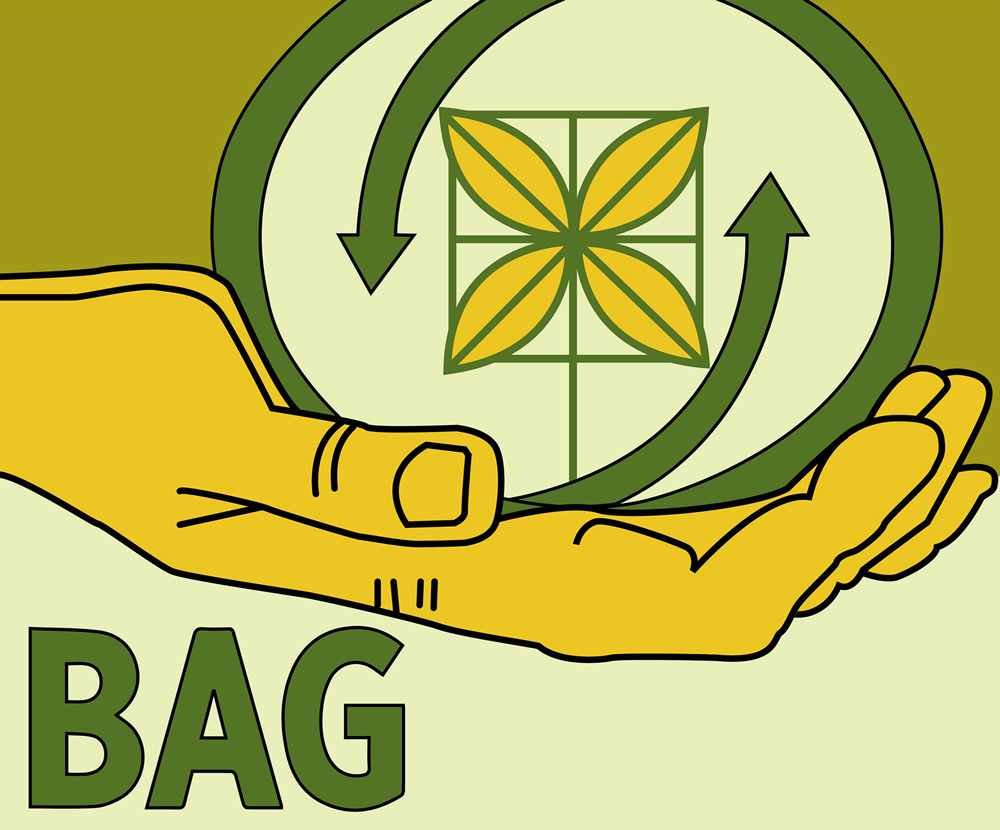The footprint of our products
How sustainable is BAG production?
More and more people want to know where their food comes from and what impact its production has on the environment. This also applies to vegetable oils and extraction meals, raising the question of their
so-called "footprint" - the ecological footprint left by an oil mill. The factors with the greatest impact on greenhouse gas emissions are the cultivation of agricultural raw materials, transport, and the mill’s own energy consumption.
To determine the BAG footprint, we asked FIBL Austria (Forschungsinstitut für Biologischen Landbau) in 2024 for a life cycle assessment (LCA) - with impressive results.
so-called "footprint" - the ecological footprint left by an oil mill. The factors with the greatest impact on greenhouse gas emissions are the cultivation of agricultural raw materials, transport, and the mill’s own energy consumption.
To determine the BAG footprint, we asked FIBL Austria (Forschungsinstitut für Biologischen Landbau) in 2024 for a life cycle assessment (LCA) - with impressive results.
The power of regional sourcing
Soybean meal and oil with around 80% lower CO₂ values
As the largest soybean oil mill in Austria, we are committed to top quality, regional sourcing, and sustainability. According to FiBL results (based on ISO 14040/44), the CO₂ footprint of our soybean meal and soybean oil is approximately 80% lower than the average European import mix. This comparison was calculated by Donau Soja using Agrifootprint data. An even greater reduction in CO₂ values was observed for meal and oil produced from Donau Soja / Europe Soya certified beans, as shown in the following tables.
(Source: Agrifootprint 6.3 | calculations by Donau Soja)
(Source: Agrifootprint 6.3 | calculations by Donau Soja)


Why is our footprint so low, and how do customers benefit?
European production
Short delivery routes
Sustainable energy supply
100% AT – biomass
Working with Donau Soja*
* certified soybeans from highly sustainable farming practices, with no deforestation or land conversion and strict environmental and climate standards.
The results highlight the positive impact of our local production, with direct benefits for our customers. For companies with agricultural supply chains, as well as in the animal feed and animal products sectors, soybean products often represent the largest share of their total CO₂ footprint.
By using BAG’s soybean meal and soybean oil - especially those certified by Donau Soja - greenhouse gas emissions are significantly reduced. This provides effective and credible support for achieving climate targets within the SBTi and CSRD requirements.
By using BAG’s soybean meal and soybean oil - especially those certified by Donau Soja - greenhouse gas emissions are significantly reduced. This provides effective and credible support for achieving climate targets within the SBTi and CSRD requirements.
